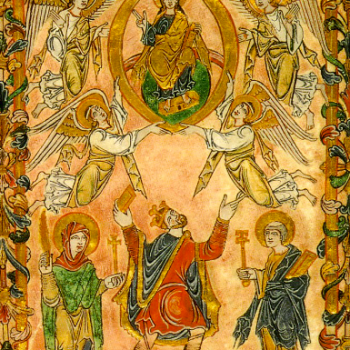Let us leave aside, for the moment, that a politically left operative group in search of the election 'game changer' has sets its sights on Rep. Paul Ryan and other conservatives who have said positive things about the philosopher/novelist Ayn Rand. Let us also concede that Rand was a nasty personality who seemed to relish making outrageous claims about her own originality and blunt—make that brutal—criticisms of anyone who would disagree with her, either on the left or the right.
Leaving all this to one side, it remains a fair question: What are we to make of Rand as a thinker and as one who has had undeniable influence within sectors of the conservative and liberty movement in the last half century?
Given the interest in the writings of Ayn Rand in the years since her death, and the intensification of that interest in the present American political climate brought to a head with the release of the first part of the Atlas Shrugged film trilogy, it is sorely disappointing to read and hear such hyperbolic and personal critiques of the woman and her thought.
That there are problems with Rand's anthropology, aesthetics, epistemology, and egoism, no Christian would deny. What is needed, even more than a point-by-point analysis of each of Rand's contradictions, is a hermeneutical key to her whole approach.
In the following, I would like to outline this hermeneutical key using Atlas Shrugged, what Rand called her most complete philosophical statement (one sure hopes so, at 1,168 pages), in order to get to what I think Rand was really looking for.
As most people familiar with the Russian-born novelist-turned-philosopher know, Rand grew up Alissa Zinovievna Rosenbaum in the nascent USSR as the seeds of Lenin's revolution were coming into fruition in Stalin's Murder-Machine. What people tend to forget in this regard is that this was also Orthodox Mother Russia, unavoidably imbued by the Christian message in a thousand subtle and not-so-subtle ways that even a non-observant Jewish girl who says she dismissed the idea of God at age 9, would not have escaped.
When I first read Rand's magnum opus in the 1970s, like many at an early stage of intellectual development, and away from the faith in which I was raised and at the time all too active in activism for activism's sake, I recognized something vaguely familiar in her work, something which I longed to retrieve, but could not at the time identify. To be sure, there was the page-turning captivation of the plot, the hilarious philosophical sneers condensed into the quick-witted quips of her heroes; the bluntly cut and bloodless characters containing little nuance and which might be seen as cartoon figures by adults. I would only later come to see how flat—indeed icon-like—these depictions were as I read and studied literature more widely. But Atlas Shrugged served as an entrée into the life of the mind—as defective as I now see that intellectual portal to have been.
I recognized something in Rand and over time I came to understand what it was. She was explicit in her debt to Aristotle (and even begrudgingly to St. Thomas Aquinas), and saw herself operating within the Natural Law Tradition (though I doubt she would have used the word "tradition," that being too collectivist for her taste). Rand, in fact, saw herself as the capstone of that Tradition and claimed to be its greatest living philosopher. But there was something else, something fully present, yet unidentified in her ardor.
There is in Rand an undeniable and passionate quest, a hunger for truth, for the ideal, for morality, for a just ordering of the world. She is indeed frequently adolescent in this quest, yet this may be just what appeals to so many idealistic young people who read her before reading the Tradition in depth.
One of the most famous opening lines in literature is the question she poses and uses as a device throughout Atlas, a question now on display at Tea Party rallies: "Who is John Galt?" The answer is not immediately given in the book; it (he) remains mysterious throughout much of the novel. Yet it inexorably emerges: Galt is for Rand the ideal man—the Man of the Mind (the logos); the One upon whom the world and its creative capacity depend. He is, in a real sense for Rand, the God-Man.
As the plot unfolds, it might be said that Galt "comes unto his own and his own receives him not." In fact, the world despises him, not because he is evil, but because he is good, and the leaders of the people set out to kill him because of his goodness and because those in darkness hate the light, their deeds being evil and contradictory. When the final confrontation with evil comes, Galt falls "into the hands of evil men" who seek to destroy him—these were the high priests of their day—and who have a certain fear of him because the people resonate with his message (all encapsulated in a speech anything but the length of the Beatitudes).




